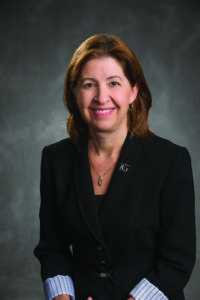
Good morning, Gusties. As we enter into the second week of January Term, I expect that you are aware that the Omicron variant is surging in Minnesota and throughout the United States. I hope that you have made it a priority to get the booster shot as soon as you are eligible to do so, as that plus strict adherence to COVID-19 protocols (masking, washing hands frequently, keeping your distance from others, and avoiding larger gatherings of people) are the best strategies to avoid getting sick and minimizing the severity of the illness if you do contract COVID-19. If you experience symptoms, please self-isolate and get tested as soon as possible. More details about updated COVID-19 mitigation on campus will be sent later this morning from the COVID-19 Response Leadership Team. Thank you for acting responsibly as we push through this next phase of this pandemic.
As I mentioned last week, January Term offers a wide variety of opportunities for Gustavus students. Today, I want to talk briefly about the theory behind experiential learning. David Kolb, a psychologist and professor emeritus at Case Western University, first published a model for experiential learning in 1984. You can learn more about David Kolb and his work on experiential learning, including several videos and podcasts, at the website for Experience Based Learning Systems, LLC (EBLS) – https://learningfromexperience.com/.
In a nutshell, Kolb’s model for experiential theory involves a cycle of learning with four stages:
- Experiencing – concrete experiences are typically the start of any learning experience. This happens all the time as we encounter or observe new situations as individuals or in classroom situations.
- Reflecting – after a new experience, we look back on the experience and contemplate the outcome.
- Thinking – based on our reflection, we look for general principles about an experience and consider lessons we have learned.
- Acting – we test out the lessons learned, leading to a new experience (and the cycle starts again).
This is a very natural learning cycle, and examples are abundant in real life. Here is a quick anecdote: Over the holidays, I decided to bake bread in my breadmaker, following a recipe that I have made many times in the past. The first loaf did not rise like usual, and I began reflecting on what went wrong. Did I miss an ingredient, or measure wrong? Then I noticed that my packet of yeast was very outdated. So, I decided to try again with freshly purchased yeast. Ta-da! A perfect loaf of bread. Lesson learned — always check the expiration date of my yeast.
This week, take note of the times when you progress through this learning cycle, and observe how others (e.g., children) learn through experiences. Make note of how observations, self-reflection, critical thinking and problem solving, and the importance of trying again play a role in the learning process. Most of all, enjoy the feeling of accomplishment every time you learn something new!
Yours in community,
President Bergman